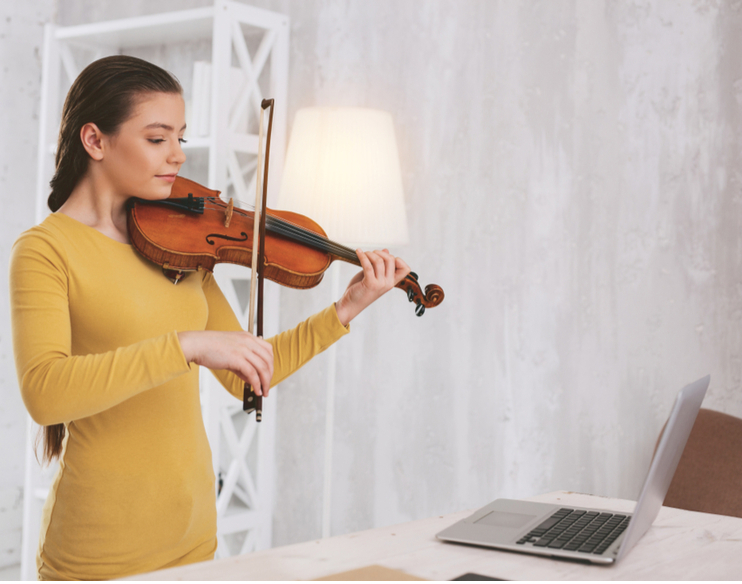The Importance of Violin Lessons
Music has the remarkable ability to touch the soul, and when it comes to nurturing the minds of children, few instruments rival the violin in its capacity to impart both skill and profound life lessons. Violin lessons for children extend far beyond the realms of musical proficiency; they serve as a gateway to enhanced cognitive abilities, emotional intelligence, and a host of other benefits that contribute to a well-rounded individual. In this article, we will explore the multifaceted importance of violin lessons for children and delve into the lasting impact they can have on a child's development.

Learning to play the violin demands a unique set of cognitive skills that stimulate various areas of the brain. From memorizing musical notes to coordinating the intricate movements required to produce harmonious sounds, playing the violin enhances memory, concentration, and multitasking abilities in children. Research has consistently shown that engaging with music, especially through playing an instrument like the violin, can have a positive impact on academic performance, particularly in subjects that require strong analytical and mathematical skills.
The violin is renowned for its difficulty, requiring precision and dedication to master. Learning to play this instrument teaches children the value of discipline and patience. The journey from producing the first awkward notes to playing a beautiful melody instills a sense of perseverance and the understanding that true mastery is a gradual process. These qualities, ingrained through violin lessons, become invaluable life skills that extend far beyond the world of music.
The violin is often described as the instrument that comes closest to mimicking the human voice. Through the violin, children can express a wide range of emotions, from the joyous to the melancholic. Learning to convey feelings through music fosters emotional intelligence, helping children recognize and understand their own emotions as well as the emotions of others. This emotional awareness becomes a crucial aspect of a child's social development, contributing to enhanced communication and empathy.
Mastering a complex skill like playing the violin naturally boosts a child's self-esteem. As they overcome challenges and witness their progress, children gain a sense of accomplishment that extends beyond the music studio. Performing in front of an audience, whether it's a recital or a family gathering, further hones their confidence and public speaking skills. This newfound self-assurance becomes a valuable asset as children navigate the challenges of adolescence and adulthood.
While playing the violin is often seen as a solo endeavor, it can also be a collaborative experience. In orchestras and ensembles, children learn the importance of teamwork, cooperation, and synchronicity. These experiences instill a sense of responsibility towards the group, teaching children to listen, adapt, and contribute to a collective goal. These social skills are transferable to various aspects of life, including school projects, extracurricular activities, and future professional endeavors.
Music, including the playing of the violin, has been linked to stress reduction and improved mental well-being. The act of creating music engages the brain and releases endorphins, contributing to a sense of relaxation and joy. In a world where children often face academic pressures and various stressors, the violin serves as a therapeutic outlet, allowing them to unwind and find solace in the harmonies they create.
Learning to play the violin exposes children to a rich tapestry of musical traditions and cultural heritage. From classical compositions to folk tunes, the violin's versatility opens doors to a diverse array of musical genres. This exposure not only broadens a child's musical horizons but also fosters an appreciation for cultural diversity. In an increasingly interconnected world, this cultural awareness becomes a valuable aspect of a child's education.
If you are interested in learning music check out our Music Lessons in Tempe.
In the symphony of a child's development, violin lessons play a vital role, weaving together cognitive, emotional, and social benefits. Beyond the acquisition of musical skills, the violin imparts life lessons that mold children into well-rounded individuals. From discipline and patience to teamwork and emotional expression, the journey of learning the violin extends far beyond the confines of the music studio, enriching the lives of children and setting the stage for a harmonious future.
If you like this check out our article: The Importance of Voice Lessons
